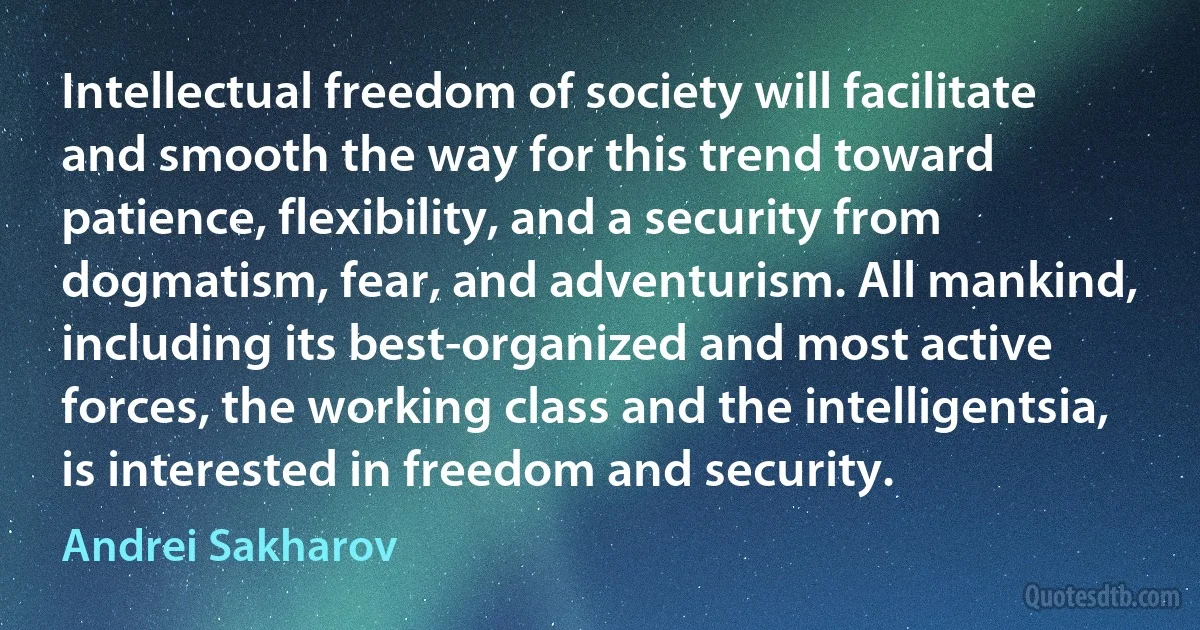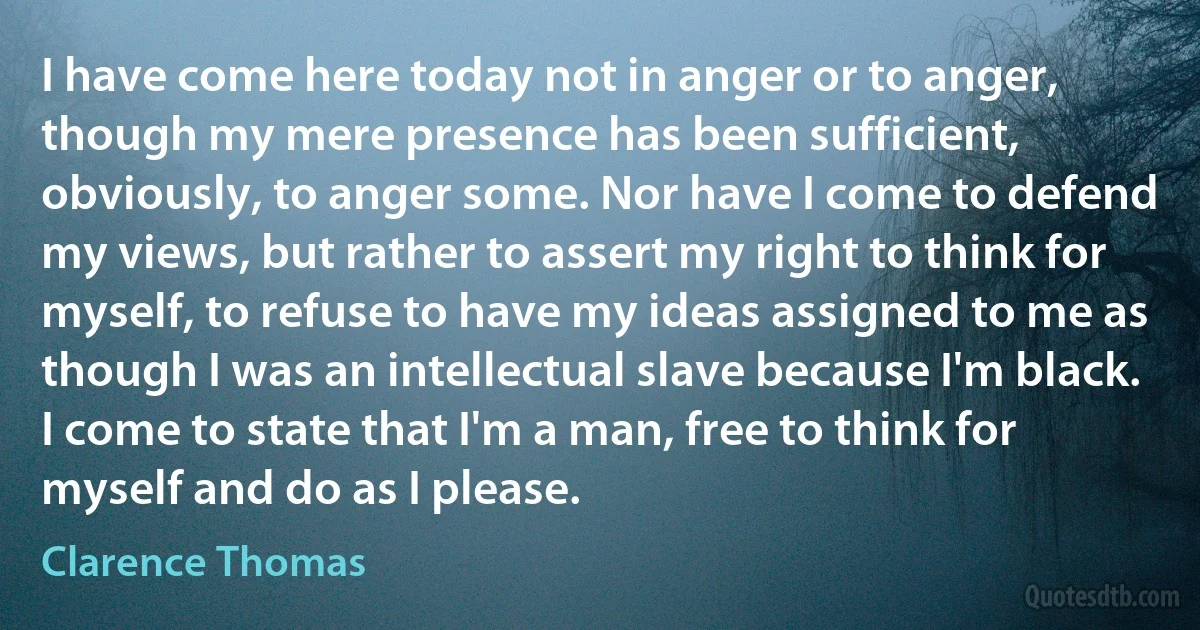Intellectual Quotes - page 75
Wealth, power, the struggle for ephemeral social and political prestige, which so absorb our attention and energy, are but the passing phase of every age; ninety-day wonders which pass from man's recollection almost before the actors who have striven from them have passed from the stage. ... What is significant in the record of man's development is none of these. It is rather those forces in society and the lives of those individuals, who have, in each generation, added something to man's intellectual and moral attainment, that lay hold on the imagination and compel admiration and reverence in each succeeding generation.

Harlan F. Stone
At one level, this movement on behalf of oppressed farm animals is emotional ... Yet the movement is also the product of a deep intellectual ferment pioneered by the Princeton scholar Peter Singer. ... This idea popularized by Professor Singer - that we have ethical obligations that transcend our species - is one whose time appears to have come. ... What we're seeing now is an interesting moral moment: a grass-roots effort by members of one species to promote the welfare of others. ... animal rights are now firmly on the mainstream ethical agenda.

Nicholas D. Kristof
The pseudoscience of astrology has no place in magick. Astrology has already died twice: once with the classical gods, and a second time after the Enlightenment. The complete failure of contemporary psychology to create anything other than a vocabulary of intellectual rubbish has encouraged astrology to resurface.

Peter J. Carroll
Greek Phanariot merchants and traders dominated the commerce of the Ottoman empire, utilizing their kinship networks and social and religious institutions to maximize not only their business and assets, but also their cultural capital. Diaspora Greeks became especially prominent from the eighteenth century in the development of printing and the press, and experienced a major intellectual revival in cities as far afield as Vienna, Venice, Odessa, Paris, and Amsterdam.

Anthony D. Smith
Nothing threatens freedom of the personality and the meaning of life like war, poverty, terror. But there are also indirect and only slightly more remote dangers. One of these is the stupefaction of man (the "gray mass," to use the cynical term of bourgeois prognosticators) by mass culture with its intentional or commercially motivated lowering of intellectual level and content, with its stress on entertainment or utilitarianism, and with its carefully protective censorship.

Andrei Sakharov
An intellectual ... lives for ideas-which means that he has a sense of dedication to the life of the mind which is very much like a religious commitment. This is not surprising, for in a very important way the role of the intellectual is inherited from the office of the cleric: it implies a special sense of the ultimate value in existence of the act of comprehension. Socrates, when he said that the unexamined life is not worth living, struck the essence of it. We can hear the voices of various intellectuals in history repeating their awareness of this feeling, in accents suitable to time, place and culture. "The proper function of the human race, taken in the aggregate,” wrote Dante in De Monarchia, "is to actualize continually the entire capacity possible to the intellect, primarily in speculation, then through its extension and for its sake, secondarily in action.”.

Richard Hofstadter
A certain degree of physical harmony and comfort is necessary, but above a certain level it becomes a hindrance instead of help. Therefore the ideal of creating an unlimited number of wants and satisfying them seems to be a delusion and a snare. The satisfaction of one's physical needs, even the intellectual needs of one's narrow self, must meet at a certain point a dead stop, before it degenerates into physical and intellectual voluptuousness. A man must arrange his physical and cultural circumstances so that they do not hinder him in his service of humanity, on which all his energies should be concentrated.

Mahatma Gandhi
The rights and duties of man thus simplified, it seems almost impertinent to attempt to illustrate truths that appear so incontrovertible: yet such deeply rooted prejudices have clouded reason, and such spurious qualities have assumed the name of virtues, that it is necessary to pursue the course of reason as it has been perplexed and involved in error, by various adventitious circumstances, comparing the simple axiom with casual deviations.
Men, in general, seem to employ their reason to justify prejudices, which they have imbibed, they cannot trace how, rather than to root them out. The mind must be strong that resolutely forms its own principles; for a kind of intellectual cowardice prevails which makes many men shrink from the task, or only do it by halves. Yet the imperfect conclusions thus drawn, are frequently very plausible, because they are built on partial experience, on just, though narrow, views.

Mary Wollstonecraft
I am convinced that human continuance depends entirely upon: the intuitive wisdom of each and every individual . . . the individual's integrity of speaking and acting only on the individual's own within-self-intuited and reasoned initiative . . . the individual's never joining action with others as motivated only by crowd-engendered-emotionalism, or a sense of the crowd's power to overwhelm, or in fear of holding to the course indicated by one's own intellectual convictions.

Buckminster Fuller
But to say a word in appreciation of governance reforms in Gujarat, or to credit Modi for having given Gujarat its first ever riot-free 12 years since independence, is to commit political hara-kiri – one is forever tainted with the colours of fascism. This intellectual terror created by the anti-Modi brigade pushed me to find out for myself the reason behind this obsessive anxiety about Modi. ... The demonisation of Modi did not start with the 2002 riots. "Smear Modi Campaign”started from day one and was carried out in the same do-or-die spirit that one witnesses today when Congress Party wants to eliminate him from the prime ministerial race.

Narendra Modi
The foundation of Scotland's success - our great intellectual, social and economic flourishing - was our commitment to education. To free education for all. ... We seek to build an education system that is open to all. A system that will not just benefit our economy - but will help to strengthen Scotland's entire civic and intellectual life. That is why we place such strong emphasis on ethics and values.

Alex Salmond
Liberty, according to my metaphysics, is an intellectual quality; an attribute that belongs not to fate nor chance. Neither possesses it, neither is capable of it. There is nothing moral or immoral in the idea of it. The definition of it is a self-determining power in an intellectual agent. It implies thought and choice and power; it can elect between objects, indifferent in point of morality, neither morally good nor morally evil. If the substance in which this quality, attribute, adjective, call it what you will, exists, has a moral sense, a conscience, a moral faculty; if it can distinguish between moral good and moral evil, and has power to choose the former and refuse the latter, it can, if it will, choose the evil and reject the good, as we see in experience it very often does.

John Adams
Intellectual genius should not be confused with the mental acuity of logicians: intellectual intuition comprises in its essence a contemplativity that is in no way part of the rational capacity, this capacity being logical rather than contemplative; now it is contemplative power, receptivity toward the uncreated Light, the opening of the Eye of the heart, which distinguishes transcendent intelligence from reason.

Frithjof Schuon
The principal cause of a lack of metaphysical understanding is not so much a fundamental intellectual incapacity as a passional attachment to concepts that are congruent with man's natural individualism. On the one hand, transcending this individualism predisposes man to such an understanding; on the other hand, total metaphysics contributes to this transcending; every spiritual realization has two poles or two points of departure, one being situated in our thought, and the other in our being.

Frithjof Schuon
One may be astonished and even scandalized at the frequency, in religious climates, of more or less unintelligent opinions and attitudes, let it be said without euphemism; the indirect cause of this phenomenon is that religion, the goal of which is to save the largest possible number of souls and not to satisfy the need for causal explanations of an intellectual elite, has no motive for directly addressing the intelligence as such. In keeping with its end and with the capacity of the majority, the religious message is basically addressed to intuition, sentiment, and imagination, and then to the will, and to reason to the extent that the human condition requires it; it informs men of the reality of God, of the immortality of the soul and of their ensuing consequences for man, and it offers man the means of saving himself. It is not, does not wish to be, and cannot be, or offer, anything else, at least not explicitly; for implicitly it offers everything.

Frithjof Schuon
![Whether he realizes it or not, however, Mr. Mets is affected every hour of his life not only by the words he hears and uses, but also by his unconscious assumptions about language. [...] Such unconscious assumptions determine the effect that words have on him -- which in turn determines the way he acts, whether wisely or foolishly. Words -- the way he uses them and the way he takes them when spoken by others -- largely shape his beliefs, his prejudices, his ideals, his aspirations. They constitute the moral and intellectual atmosphere in which he lives -- in short, his semantic environment. (S. I. Hayakawa)](https://cdn.quotesdtb.com/img/quotes_images_webp/25/s-i-hayakawa-affected-865825.webp)


